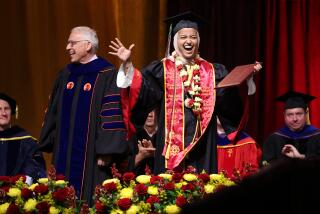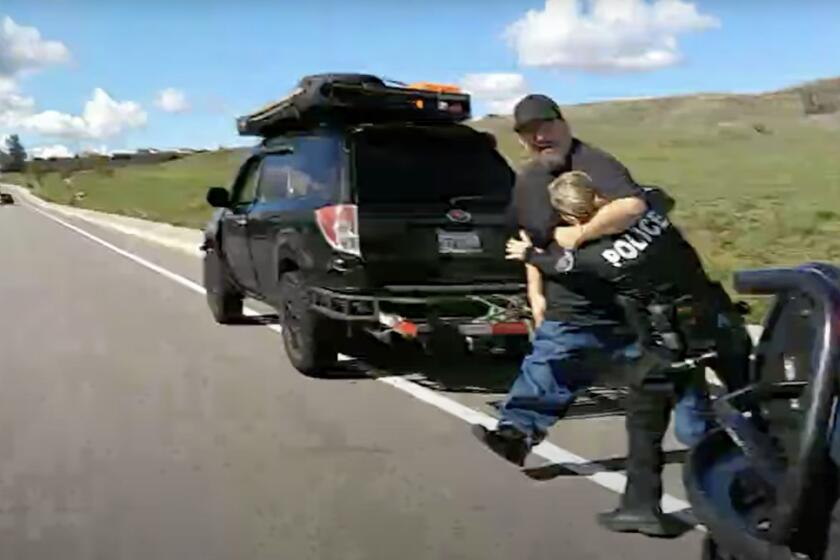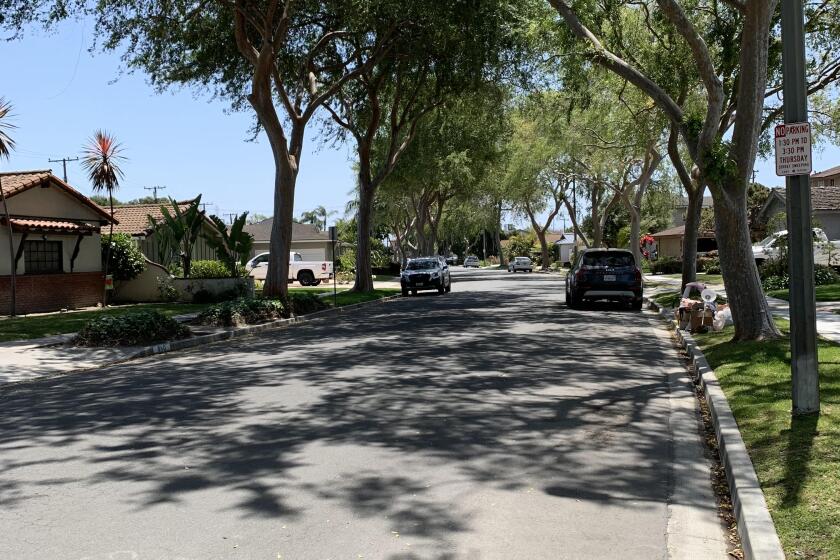A Family Opens Up to Gain Closure at Slayer’s Sentencing
There was that word again: closure. So easy to wish for, so painful to obtain.
All Kimberley Horton’s friends and relatives wanted Friday was a step toward it.
To get it they were going to have to relive her murder another time. They were going to have to remember, again, how her murder helped popularize a new word: carjacking. They were going to have to wonder why it took six years for justice.
They gathered in Los Angeles Superior Court for the sentencing of Torrance Black, who has admitted to a murderous two-state rampage beginning in 1992 that left Kimberley and four others dead.
Black, 27, was led into the courtroom in shackles and dressed in county blues. He had pleaded guilty to the murders to avoid the death penalty.
But before being sentenced to life in prison without the possibility of parole, Black would have to hear from those whose lives were touched.
Richard Horton, a Baptist minister from Inglewood whose agony became so great after Kimberley’s death that he questioned his own belief in God, stared at Black.
“When you take a life, you just don’t take a life--you take everything that goes into that life,” Pastor Horton said in a fatherly, ministerial tone. “You take everything that person was and everything that person could have been.”
*
Kimberley Horton, one of five children, was a 21-year-old UCLA student majoring in international law. She was supposed to go to Japan to teach English, to Quebec to study French, and ultimately to law school.
The nightmare her father spoke of began July 25, 1992 when his daughter stopped at a red light late that night at 80th Street and Crenshaw Boulevard near the Los Angeles-Inglewood border. Black shot Horton in the head as she was driving to her parents’ home.
After dragging her from the car, Black left Horton on the street and raced off with her 1991 Honda Accord, abandoning it in Pomona. She died four days later, one of the first local victims of the terrifying new crime of carjacking.
Within weeks, cities across the nation were reporting stunning numbers of carjackings. By the fall of that year, the FBI put out a formal warning about carjackings, and the crime was made a federal offense.
Black, a troubled Diamond Bar youth, was soon suspected of having committed the crime. But it would be nearly two years before detectives tracked him down to a Michigan jail, where he was serving 25 to 45 years for a Detroit murder.
Investigators slowly pieced together a killing rampage that began months earlier with the San Bernardino slaying of Amy Hess, Black’s girlfriend, who was shot and left in her car in a new Chino Hills subdivision.
Black killed Horton in July, shot and wounded Pal Ho outside an Alhambra hotel seven months later, and four months after that--in June 1993--fatally shot Phillip Doll, 17, and Christian Fries, 19, in Sylmar.
Black shot Ho as part of a contract hit for an Asian gang, detectives say. They believe that he was involved in a series of residential robberies with Fries and Doll and killed them after a dispute.
*
As he addressed Black on Friday, Horton felt a sad irony at Black’s guilty pleas to avoid the death penalty.
“You take five lives and yet you get to determine your punishment,” he said, a trace of anger beginning to show. “You say, ‘I don’t want the death penalty.’ What a shame Kimberley and Amy Hess and the others could not make that determination.”
Black listened without expression, occasionally stretching his fingers. His eyes fixed on Kimberley’s aunt, her brother and her father as they took turns speaking.
“I can’t hate you because I don’t know you, but I hate everything you represent,” said Kyle Horton to the man who murdered his sister.
The aunt, Dorothy Collier, spoke of the four markers in Kimberley’s life: her birth, her childhood, her tragic death and the 1993 UCLA graduation, when Kimberley’s cap and gown were placed on an empty chair.
Then, before a courtroom filled with other Horton family members, members of Horton’s congregation and the family of Amy Hess, the judge imposed the sentence. Black said nothing. He was led from the courtroom.
“I’m glad its over, and I’m glad he’s off the streets,” said Amy Hess’ mother, Kathy Hess, there with her husband and daughter. The Hortons had been in a San Bernardino courtroom last August when Black was sentenced separately for Amy’s murder.
Members of the two families embraced. Richard Horton said it was time for his family to begin opening up.
“We can’t do anything about what he did to Kim,” the pastor said. “But we have to be careful not to let it harm the family--how we treat each other or what we think of each other.”
Maybe then, maybe later, he said, there will be some closure.
More to Read
Start your day right
Sign up for Essential California for news, features and recommendations from the L.A. Times and beyond in your inbox six days a week.
You may occasionally receive promotional content from the Los Angeles Times.






